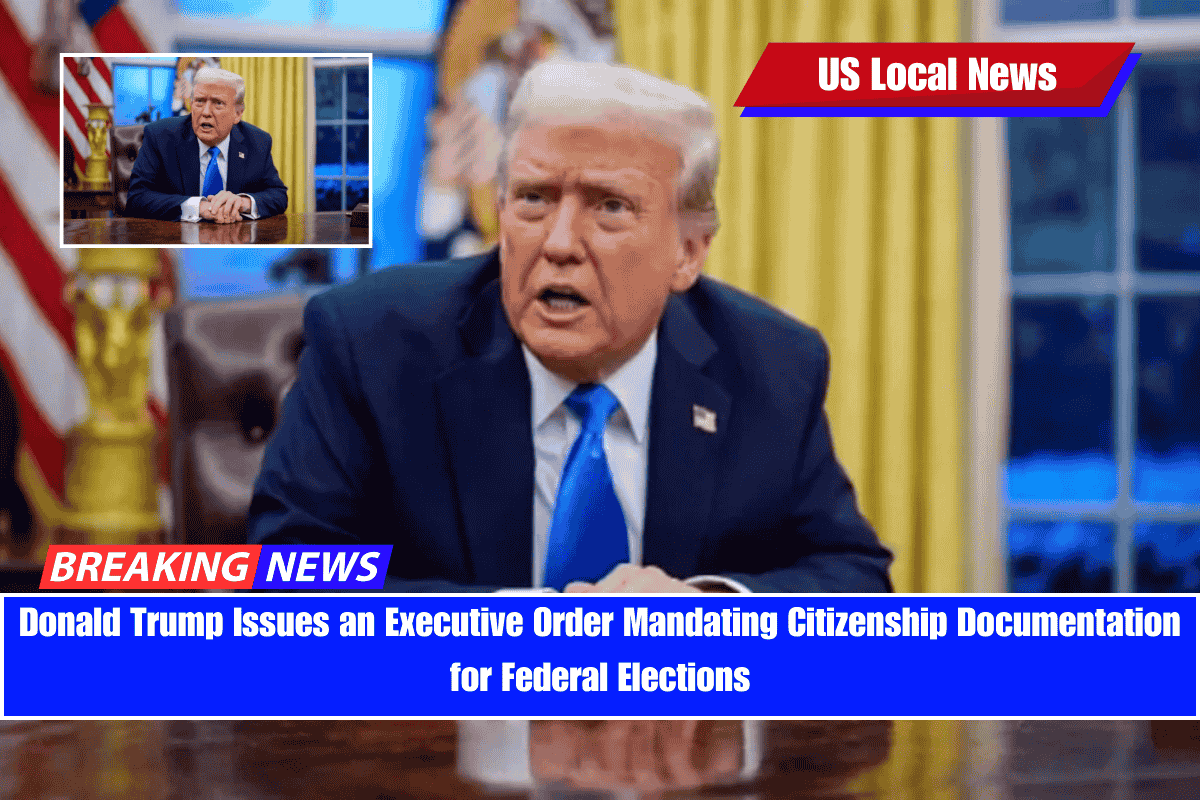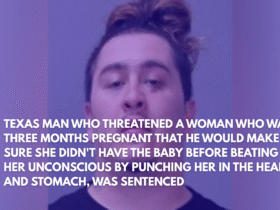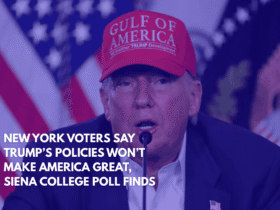WASHINGTON, D.C. — President Donald Trump has signed a new executive order that aims to bring major changes to how federal elections are conducted in the United States. The order, signed on Tuesday, introduces strict voter identification requirements and gives more control over elections to the federal executive branch.
The move is already receiving backlash from voting rights groups and is expected to face legal challenges.
What the Executive Order Says
The executive order requires all applicants for federal voter registration to provide official proof of U.S. citizenship. Accepted documents include:
- A U.S. passport
- A REAL ID-compliant driver’s license or state-issued ID
- A valid government-issued photo ID from the federal or state level
The order also says that states and local election officials must verify the documents and report the information. If states do not follow the new rules, the federal government could withhold election-related funding.
Mail-in Voting Restrictions
The order also targets mail-in and absentee voting, which Trump has criticized for years. It instructs Attorney General Pam Bondi to ensure that ballots arriving after Election Day are not counted.
Trump said, “This country is so sick because of the fake elections and bad elections, and we’re going to straighten it out.”
The order also directs Bondi to work with state election offices to identify:
- People who vote illegally
- Ineligible individuals who register to vote
- Voters who provide false information
- Those who threaten or intimidate election workers or other voters
Voter-Verified Paper Ballots Required
Trump’s executive order includes a requirement for voter-verifiable paper ballots, meaning all voting machines must produce a physical paper trail. This is intended to reduce election fraud or human error.
White House staff secretary Will Scharf called the order “the farthest-reaching executive action taken in the history of the Republic to secure our elections.”
Critics Raise Concerns About Voter Access
Currently, 36 states require some form of ID to vote, while 14 states and Washington, D.C. do not. Voting rights organizations and legal experts say that strict voter ID laws could make it harder for certain groups to vote, including:
- Senior citizens
- Minority communities
- Low-income individuals
- Students
- People with disabilities
- Naturalized citizens
Rick Hasen, a UCLA law professor, wrote on the Election Law Blog that the order, if it survives legal challenges, would “shift power over federal elections into the hands of the Presidency.” He added that it might stop very few non-citizens but could block millions of eligible voters from registering due to lack of proper documents.
Sophia Lin Lakin, Director of the ACLU Voting Rights Project, also criticized the order, calling it a “blatant overreach that threatens to disenfranchise tens of millions of eligible voters.”
She warned that this order will disproportionately affect historically excluded communities.
Biden-Era Voting Order Revoked
As part of the new order, Trump also revoked former President Joe Biden’s 2021 executive order called “Promoting Access to Voting,” which encouraged federal agencies to help citizens register and access voting information.
Trump’s staff secretary Scharf said the Biden-era directive “weaponized government to corrupt and pollute our election process.”











Leave a Reply